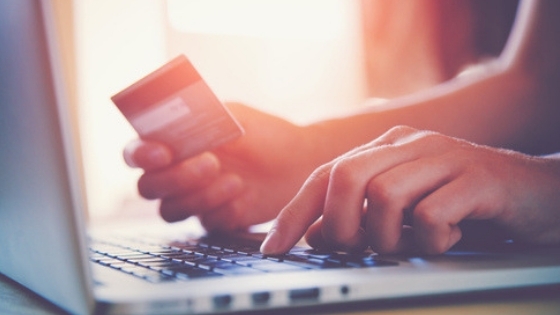Online shopping has made buying clothes, gadgets, and even consumer goods easier for most people. However, accompanying this significant benefit are forms of cyber attacks such as credit card fraud, stolen identities, malware, and ransomware. These alarming issues may raise some concerns, but you can keep your personal and financial information safe as long as you take the right steps when purchasing items and services at e-commerce stores.
Here are some tips to follow for a safe online shopping experience:

- Check for Secure Payment Methods
Hackers have sophisticated software to go around digital barriers that some websites use to protect their data. You should look for a shop that connects with legitimate payment gateway providers to ensure the security of your transaction and guarantee the safety of your financial information. These providers specialize in handling credit card payments, so it’s more seamless for customers to make authorized transactions through their computers or mobile devices to pay the sellers, even if they don’t know their bank’s identifier or BIC Codes.
Payment gateways are hosted on secure servers that encrypt your information. This means that, even if a hacker manages to get a hold of your full name and credit card number, they will have a difficult time making sense of it because data encryption scrambles letters and digits into an undecipherable mess.
These are the legit payment gateway providers used by most online sellers:
- PayPal – PayPal provides credit card security in that you only need to put in your financial information once when you sign up. Afterward, you can shop in peace with the multitudes of merchants who use this provider without the need to keep on disclosing your credit card details every time you buy stuff online.
- Stripe – Strip is another payment gateway solution that operates in a similar way to PayPal, but sellers prefer it because setting up an account is a breeze. Plus, customers also get to pay in-site without getting redirected to the provider’s site, unlike PayPal.
- Amazon Payments – This gateway by the e-commerce giant offers convenience to shoppers by streamlining the process. You can also save money on Amazon by taking advantage of coupon codes and exclusive deals given to those with this account.
- Square – Square’s most significant advantage is that it allows merchants to send and receive payments on invoices. This way, you can also shop for services, not just products.
Making sure to check the payment methods for online shopping is absolutely essential for safe online shopping.
- Note the URL
A quick look at the address bar of the browser you’re using will let you know if a web page is secure or not. Never shop and put in your credit card information from websites that do not begin with “HTTPS” and do not show a lock icon before the uniform resource locator (URL). If you’re using Google Chrome, the browser also prevents you from accessing sites that they deem are not secure.
- Be Wary of Sharing Personal Details
Some online merchants ask for your birthday to send you exclusive coupons and deals on your birth month. However, you should be suspicious if they also ask for your social security number and other personal details, which typically have no bearing whatsoever on your purchase. It pays to be cautious when disclosing personal information because that data might get leaked.

- Shop on a Private Connection
You may be tempted to browse at online stores while connected to public Wi-Fi as you’re waiting for your order at a coffee shop. That’s not a good idea, though, because these networks utilize public airwaves and someone can intercept the information you send and receive through these public connections without difficulty. Shop at home as much as you can.
To increase security, you can also use a virtual private network (VPN). Here’s how it works:
- The VPN provider hosts a private server that acts as a gateway for your computer, laptop, or mobile device to access the Internet.
- You, as a client, must download a software or an app to connect with the private server.
- Use the program or app to visit websites and shop online without fear because the information that is sent and received between your device and the server is encrypted.
Read Also: Why I Love To Buy From Amazon Even Though I’m In South Africa
- Review Your Bank Statements Regularly
Check your electronic statements regularly, not just at the end of the month. Be vigilant in reviewing the charges made on your account to make sure that nobody else is using it. Moreover, if you can, buy only using credit cards online so that you can report fraud charges in case another person gets a hold of your card details. If they’re able to acquire your debit card information, they can get direct access to your funds.
The government also issued the Fair Credit Billing Act to protect consumers against billing errors such as:
- Unauthorized or fraudulent charges
- Incorrect date or amount on your bills
- Fees for products and services you didn’t receive or accept
- Failure to credit payments and send bills
The act guarantees that you only pay as much as $50 for unauthorized charges. There are also other protections in place to defend consumers. You’ll need to be quick because you only have a month to inform the bank or card issuer of charges that you did not authorize.
- Install Antivirus Software
Often, scammers don’t just wait for you to give them your personal details. They also trap you through malware. That’s why it’s crucial that you have an antivirus program installed on your computer or mobile device to protect you against harmful software that might get inside your gadgets when visiting shady websites and accidentally clicking the buttons in them. Make sure to update it regularly as well.
You can also install a full-service security suite that will guard you against:
- Spam – These are unsolicited messages typically sent to your email inbox.
- Phishing Attacks – These occur when scammers try to acquire personal data by masquerading as a legit entity. An example of this is the infamous Nigerian prince who needs financial help.
- Spyware – This software breaks into your device and steals data or damages your computer.
- Viruses – Viruses have various uses, such as modifying other programs or software and manipulating their codes to send information to the hacker.
- Browser Exploits – These are malicious codes that abuse the weakness of your operating system or software to alter your browser settings without you knowing about it.
Conclusion
E-commerce has given consumers a smooth and way to buy goods and acquire services online. It comes with a lot of benefits, primarily convenience, because you get what you need delivered right at your doorstep at the click of a button. Be a smart online shopper by following the tips above to ensure the safety of your personal information.
 Kaboutjie SA Mommy Blogs by Lynne Huysamen
Kaboutjie SA Mommy Blogs by Lynne Huysamen




